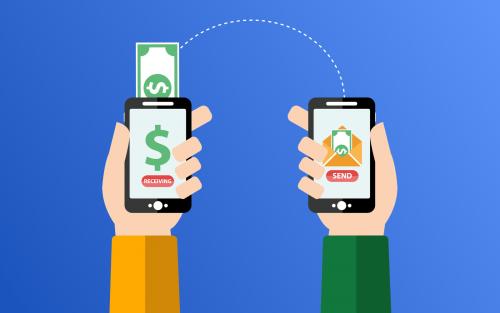What Are Peer-to-Peer Payments?

Peer-to-peer (P2P) payments are a type of transaction where two individuals exchange money directly with each other, without the need for a third party. This can be done through a variety of methods, including but not limited to: cash, check, wire transfer, or online payment services.
One of the most popular P2P payment services is Venmo, which allows users to send and receive money from their friends and family members with ease. Other well-known services include Square Cash, PayPal, and Apple Pay.
Why Use Peer-to-Peer Payments?
There are a number of reasons why you might want to use a P2P payment service. Perhaps you need to send money to a friend or family member and don't want to wait for a check to arrive in the mail. Or maybe you're looking for a cheaper and faster way to send international payments.
Whatever your reason may be, P2P payments offer a convenient and easy-to-use service for individuals who don't want to deal with the hassle of using cash or another form of payment.
How Does Peer-to-Peer Payment Work?
When you initiate a P2P payment, you send money from your bank account to that of the person you're paying (or they do it for you). The funds are typically withdrawn immediately. However, some payments could take a few days to process because of bank transfers or weekend processing. Either way, the money should reach its destination within a day or two.
How Are Peer-to-Peer Payments Different From Bank Transfers?
Though both P2P payments and wire transfers are technically two-way transactions, there are a few key differences between the two.
For starters, wire transfers usually cost money to send (usually a few dollars), while P2P payments are typically free to use. Additionally, wire transfers can take anywhere from a few hours to a few days to process, while P2P payments are typically processed in the same day (or in a couple of days at most).
The biggest difference between bank transfers and P2P payments is who you're sending it to. Wire transfers are primarily used by companies or financial institutions to send secure transactions to one another. On the other hand, P2P payments are typically for individuals (friends, family, etc.).
What are the Differences Between Peer-to-Peer Payments?
While all peer-to-peer payment services work in a similar fashion, there are some differences between them. For example, Venmo is only available in the United States. On the other hand, PayPal is worldwide and can be used for business transactions as well as personal payments.
Additionally, some peer-to-peer payment services offer more features than others. For example, Venmo allows users to send and receive money as well as make purchases with their Venmo account. Other services, like Square Cash and PayPal, only allow users to send and receive money.
What Countries Support Peer-to-Peer Payments?
Peer-to-peer payments are supported in most countries around the world. However, there are some notable exceptions. For example, Venmo is only available in the United States. And while PayPal is available worldwide, it can't be used to send or receive payments in India.
How Safe Are Peer-to-Peer Payments?
Generally speaking, peer-to-peer payments are considered to be a safe way to send money. This is because the funds are transferred directly from one bank account to another, which means there's no need for any third party (like a credit card company) to get involved.
That being said, there is always some risk involved with any type of online transaction. So it's important to be aware of the potential risks before you send any money.
What Are the Risks of Peer-to-Peer Payments?
The biggest risk associated with peer-to-peer payments is that your money could be stolen or misused by the recipient. This is especially true if you don't know the person well, or aren't familiar with their background.
For example, it's possible for someone to take advantage of peer-to-peer payment services when they're feeling desperate and need cash quickly (e.g., covering an unexpected medical expense or paying for a family member's bail). Of course, it's also possible that the recipient will do the right thing with your money. Regardless of what happens, you're always taking a risk when sending someone money via peer-to-peer payment services.



Comments